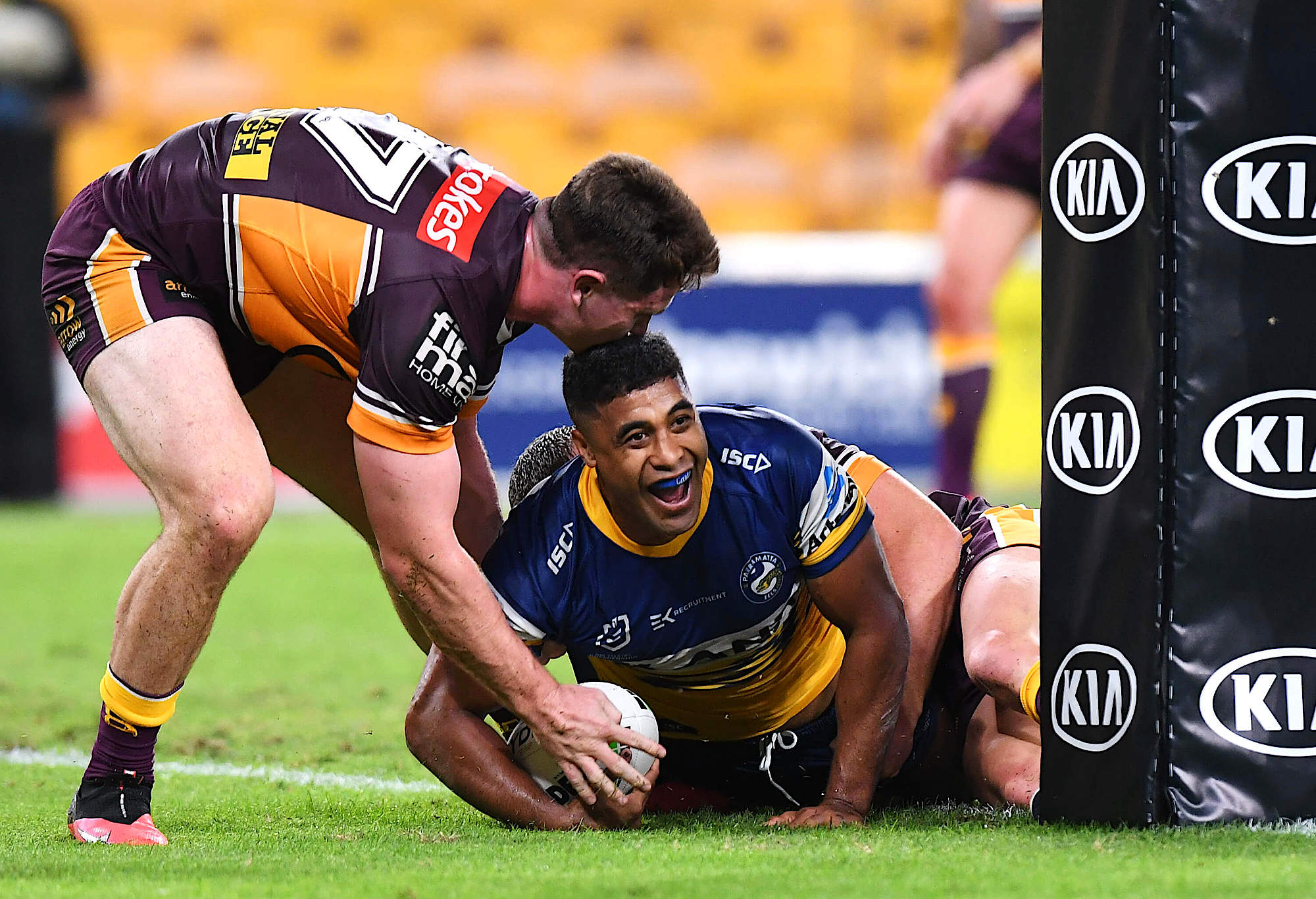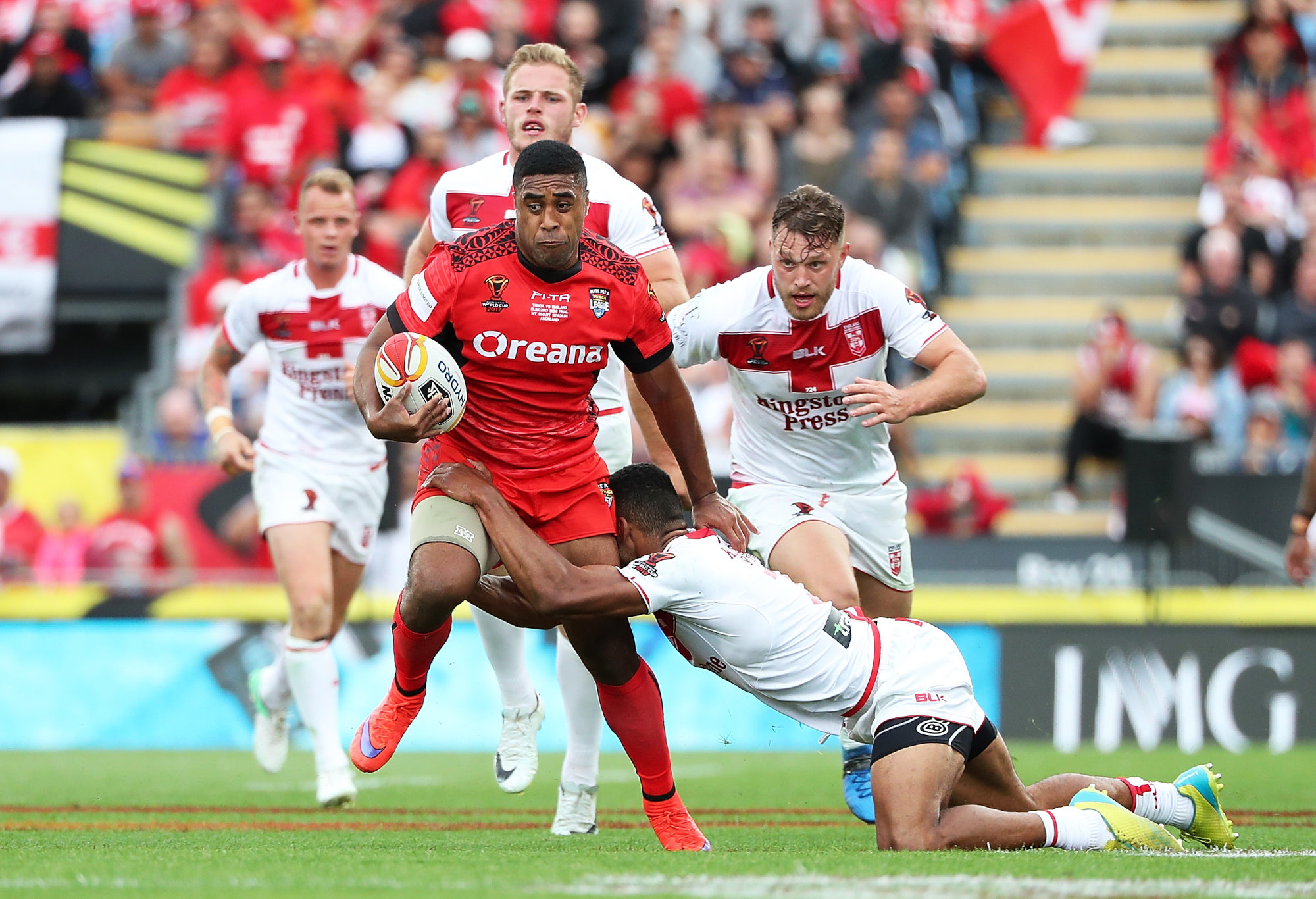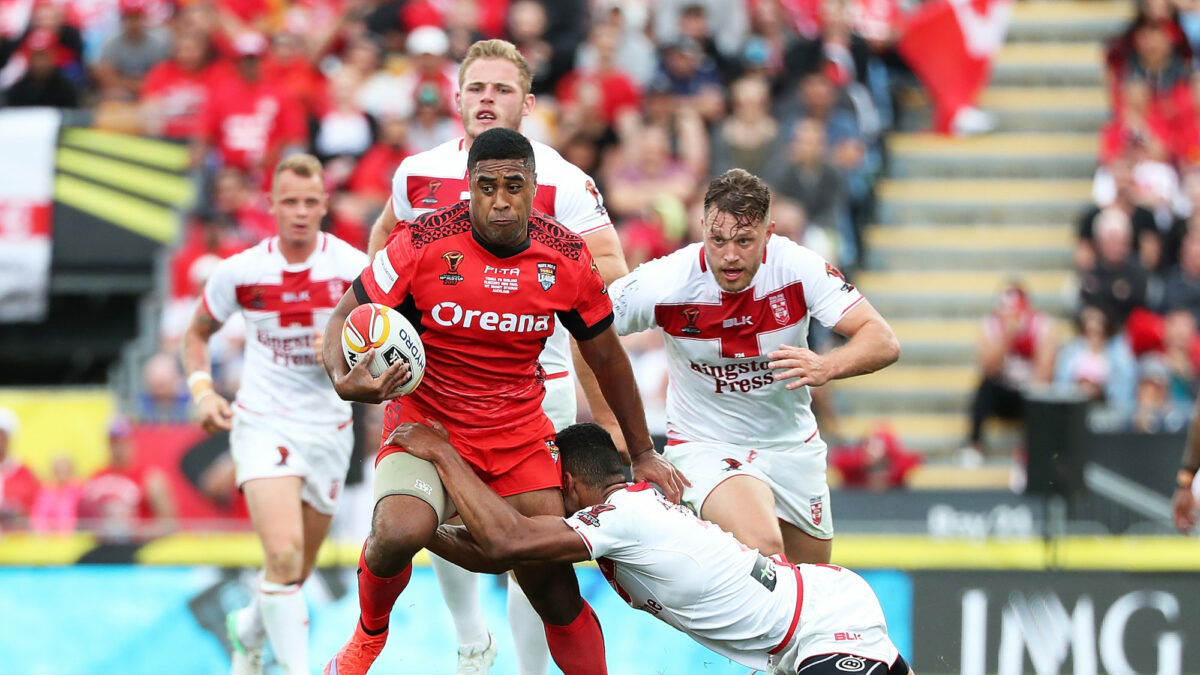It is curious to me that the NRL executives have decided they are comfortable to register Michael Jennings’ contract, but then draw the line at celebration of a milestone game.
Watching him make his comeback to the NRL last Friday night, I must admit it made me uncomfortable.
He is now set to play his 300th NRL game on Thursday night for the Sydney Roosters when they take on the Knights with his club’s injury woes meaning he is likely to be selected rather than the 18th player like last week.
He is the 51st player in NRL history to reach this milestone and it is a milestone typically celebrated with the NRL CEO presenting the player with a game ball before kick-off and then the circulation of a media release where league officials play tribute to the player.
“Due to past conduct, Michael Jennings will not receive official NRL recognition on his 300th match,” NRL CEO Andrew Abdo said in a statement to AAP on Monday.
Why has the NRL decided to cancel the celebrations? Is it just because of external pressure to do so?
What does this mean for the future? How will the governing body decide which players it will celebrate and which it will not? What is the threshold for behaviours which are tolerated and those which are not?
It doesn’t have to be black and white, but some thought needs to be put into it.
Whether the NRL celebrates it or not, you can’t deny the significance of the achievement and Jennings will go down in history as a member of the ‘300’ club. The history books won’t state that Jennings did not get the game ball or a media release, he will still be recognised for the achievement.
Jennings was at my club, Parramatta, when he registered a positive test to performance-enhancing drugs. I remember the day I heard the news clearly as it was the day of the Eels’ week two finals clash against the Rabbitohs.
Perhaps that explained his outstanding form (and pace) that year. Jennings’ ban meant that Haze Dunster made his debut in the most important game of the year with my only wish being that he played well enough to not be nicknamed ‘Haze Dumpster’ going forward.
Since then Jennings has served a three-year ban. He has maintained that he did not intentionally take the banned performance-enhancing substances Ligandrol and Ibutamoren.

(Bradley Kanaris/Getty Images)
But that’s not the only negative press that the Jennings milestone has received.
Jennings is also in a legal battle with his ex-wife, Kirra Wilden. She has accused Jennings of raping her multiple times during their marriage. She has also accused him of verbal abuse, cocaine use and for regular and heavy drinking and gambling during their marriage.
As at the end of last year, Jennings still had not paid his victim the nearly $500,000 ordered at the conclusion of the civil dispute in the NSW District Court. This among other things, was for personal injuries, including post-traumatic stress disorder.
Since the ruling in this case, Jennings has since lost an appeal to clear his name and reduce the financial penalty awarded to Wilden.
I’m not necessarily of the view that these changes should preclude Jennings from ever playing the game again.
It’s tricky. It would be easy to say that any player that had committed an offence of a certain magnitude should not be able to return to the game.
However, if the NRL simply cuts that player loose, does it mean his chances of re-offending in future become greater?
I firmly believe the NRL has a responsibility to the men that are part of the competition. Does this responsibility extend to being given another chance?
The Roar League Podcast is on YouTube! Click here and subscribe to make sure you never miss an episode
What if Jennings has returned because he thinks it’s the best chance of fulfilling his financial obligations to his ex-wife?
I don’t think this is the case. Lawyers acting for Wilden have said that she is yet to receive any money from Jennings.
If Jennings was serious about paying the money he owes, would he not have at least paid something by this point or agreed to a payment plan?

Michael Jennings of Tonga (Photo by Fiona Goodall/Getty Images)
After the Roosters’ loss on Friday night, coach Trent Robinson was asked about Jennings’ contribution to the match.
“I thought he was great,” Robinson said. “He’s been playing that way, training that way and [it] was really nice to see him play, get out there and show that he’s still got gas and he’s still got effort.”
That misses the point of the discomfort that some people may have had, watching him play.
Whether the NRL recognises the milestone or not is almost irrelevant. History will remember Jennings as a player that hit that milestone.
Whether history judges the NRL harshly for re-registering that contract is another question altogether.
